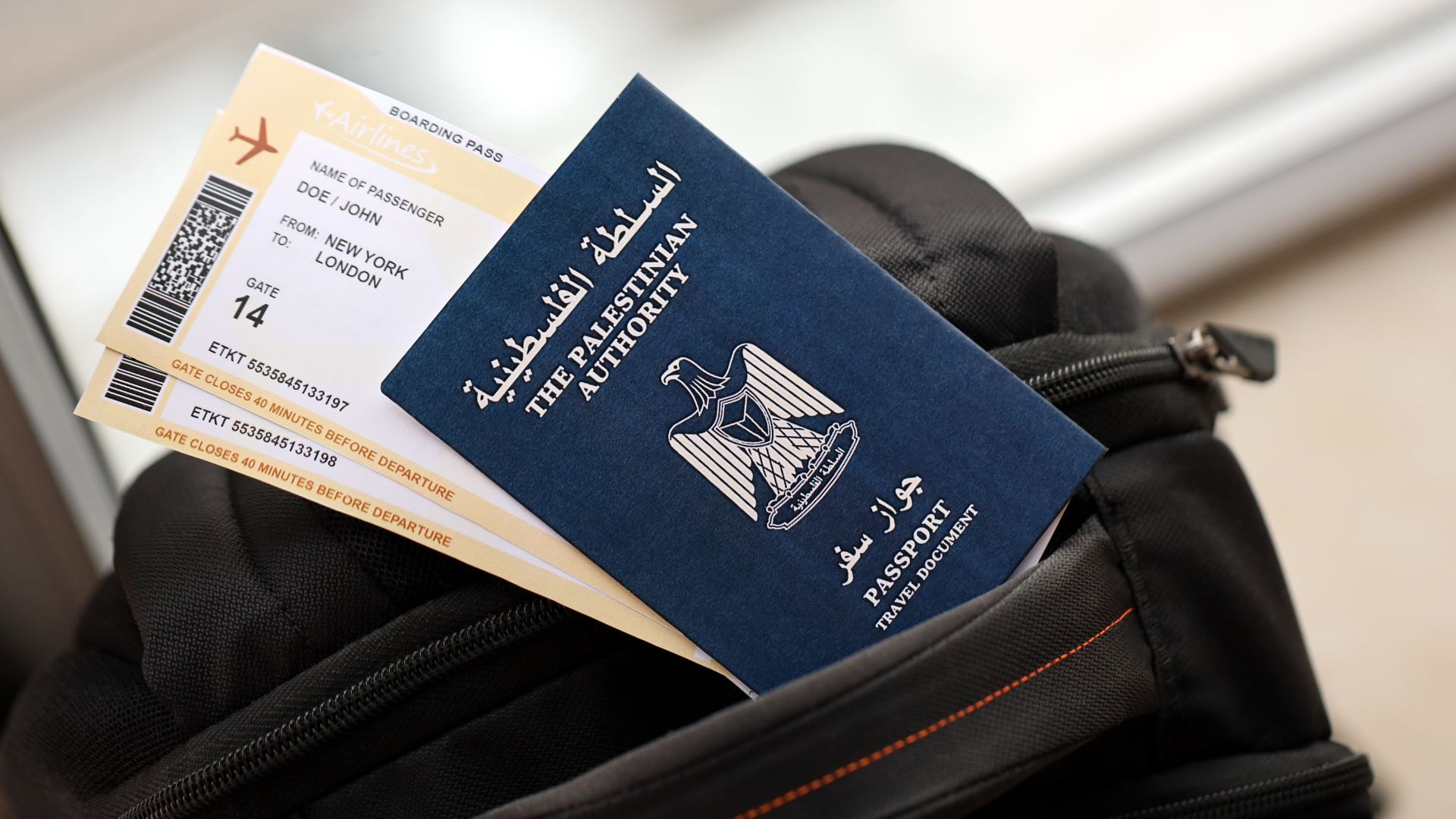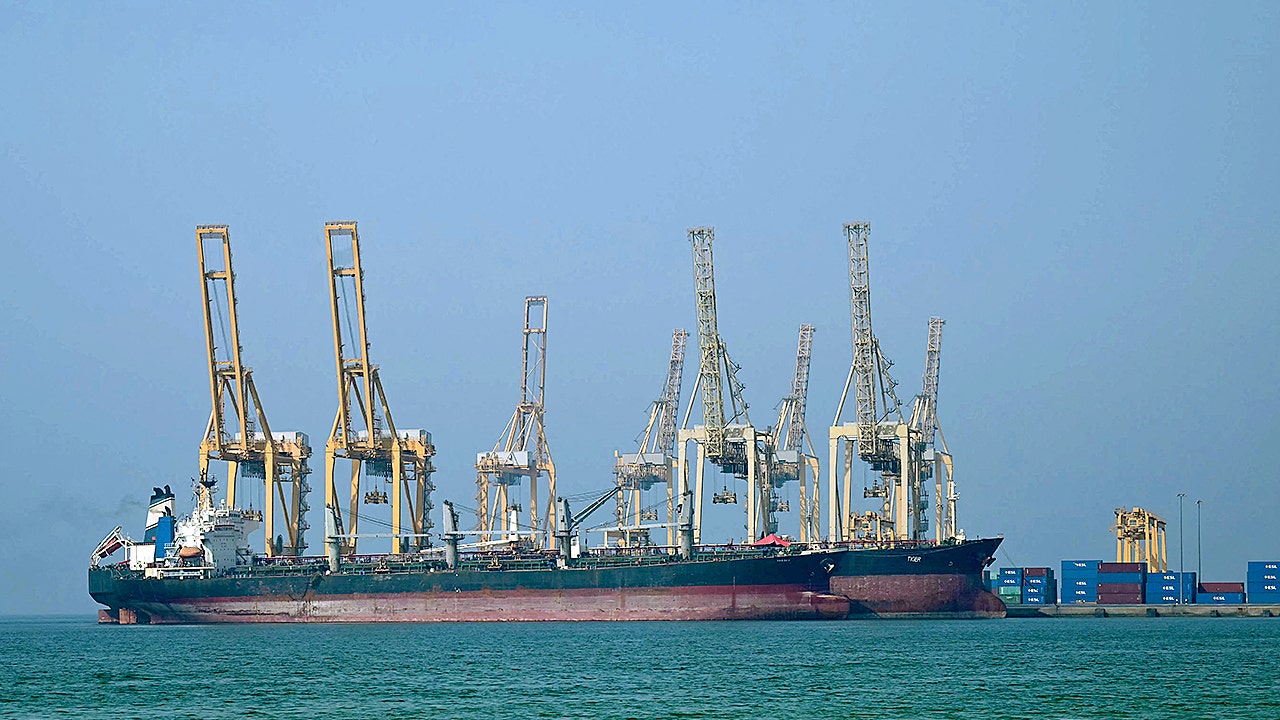The Trump administration has suspended nearly all visitor visa approvals for individuals holding Palestinian Authority passports, according to an internal State Department directive.
The move comes as the United States prepares to block Palestinian officials from attending September’s United Nations General Assembly, where several countries are expected to push for recognition of Palestine as a nation.
🇺🇸🇵🇸 NYT: U.S. Suspends Visas for Palestinian Passport Holders
The Trump administration has suspended approvals for most nonimmigrant U.S. visas for individuals holding Palestinian Authority passports, halting travel for education, medical treatment, business, and family visits.… pic.twitter.com/8SdwghEeNH
— DD Geopolitics (@DD_Geopolitics) August 31, 2025
Trump’s Sovereign Wealth Fund: What Could It Mean For Your Money?
An internal cable, dated August 18 and signed by Secretary of State Marco Rubio, instructed U.S. embassies and consulates to deny non-immigrant visas to “all otherwise eligible Palestinian Authority passport holders” applying with a PA passport.
The directive, which took effect immediately, applies to visa categories including tourism, student exchanges, business travel, and medical treatment.
This Could Be the Most Important Video Gun Owners Watch All Year
‘
The cable follows an August 16 announcement by the State Department that it was suspending “all visitor visas for individuals from Gaza” pending further review.
All visitor visas for individuals from Gaza are being stopped while we conduct a full and thorough review of the process and procedures used to issue a small number of temporary medical-humanitarian visas in recent days.
— Department of State (@StateDept) August 16, 2025
The State Department has also moved to revoke and deny visas for members of the Palestine Liberation Organization (PLO) and Palestinian Authority (PA) in advance of the UN meeting.
In the August 18 cable, the State Department said the measure was intended “to ensure that such applications have undergone necessary vetting and screening protocols to ensure the applicant’s identity and eligibility for a visa under U.S. law.”
A State Department spokesperson confirmed the restrictions, stating, “The Trump administration is taking concrete steps in compliance with U.S. law and our national security in regards to announced visa restrictions and revocations for PA passport holders.”
The spokesperson added, “Every visa decision is a national security decision, and the State Department is vetting and adjudicating visa decisions for PA passport holders accordingly.”
Today the Trump Administration is announcing it will deny and revoke visas from members of the Palestine Liberation Organization (PLO) and the Palestinian Authority (PA) ahead of the upcoming UN General Assembly per U.S. law.
Before we take them seriously as partners in…
— Tommy Pigott (@StateDeputySpox) August 29, 2025
The new policy does not apply to Palestinians applying for immigrant visas, nor does it apply to individuals applying for non-immigrant visas using passports issued by other countries.
However, the directive explicitly covers diplomatic or official visas sought by Palestinian officials traveling with PA passports.
“This guidance does include visa applicants for diplomatic or official type visas and for individuals engaging in diplomatic and official travel purposes applying with Palestinian Authority passports,” the cable stated.
While the State Department acknowledged in the cable that the Palestinian Authority is “a competent authority for passport issuing purposes,” it emphasized that “the United States does NOT recognize the PA as a ‘foreign government.’”
The suspension comes as diplomatic tensions intensify ahead of the UN General Assembly, where Palestinian leadership has lobbied for international recognition of statehood.
The U.S. position reflects longstanding policy that does not recognize the PA as a sovereign government and has increasingly limited its officials’ access to diplomatic channels in Washington.
The visa restrictions represent the latest step in the Trump administration’s broader approach toward Palestinian leadership, continuing efforts to restrict its international presence while maintaining that national security considerations guide every visa-related decision.
Further details about the implementation of the policy are expected in the days leading up to the UN session, though State Department officials have indicated that the restrictions will remain in place until additional reviews are complete.
Read the full article here







![Cops Return to Nancy Guthrie’s Arizona Home, Search Nearby Wooded Area [WATCH] Cops Return to Nancy Guthrie’s Arizona Home, Search Nearby Wooded Area [WATCH]](https://www.rvmnews.com/wp-content/uploads/2024/06/2024.06.10-12.53-rvmnews-6666f7547fb76.jpg)




![Harris Relaunches ‘Kamala HQ’ as a Youth Organizing Platform Ahead of 2026 Midterms [WATCH] Harris Relaunches ‘Kamala HQ’ as a Youth Organizing Platform Ahead of 2026 Midterms [WATCH]](https://www.rvmnews.com/wp-content/uploads/2024/10/2024.10.28-06.59-rvmnews-671fdf2ba6baf.jpg)